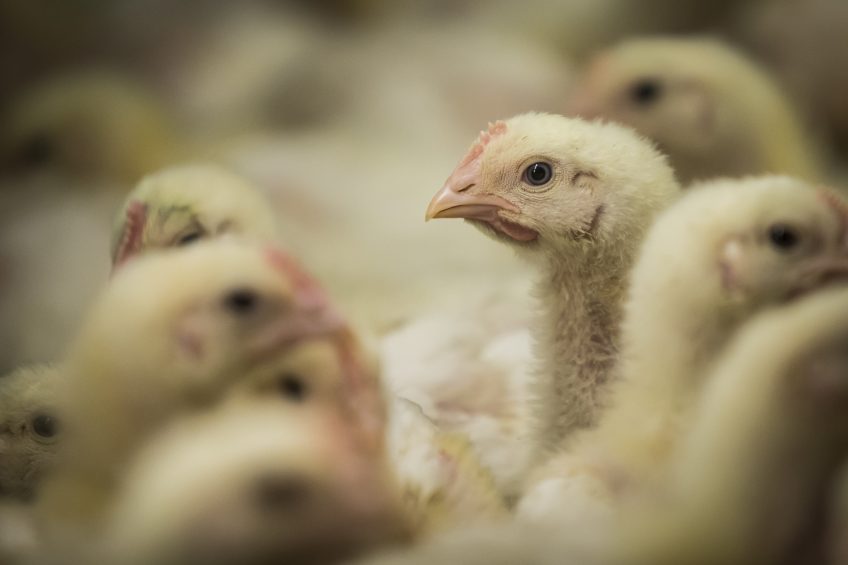Intensive broiler farming, rise in antimicrobial resistance

Intensive broiler rearing practices in the EU is contributing to the rise in antimicrobial resistance in bacteria of zoonotic importance, a new report has claimed.
The study, carried out by AgriBusiness Consulting, says bacteria such as Campylobacter spp,Salmonella SPP and E.coli typically found in intensive production are developing resistance to multiple antibiotic substances that are important to human health.
It says that although poultry farms with more than 100,000 head account for less than 1% of total poultry holdings in the EU, latest Eurostat data shows that these holdings account for 38% of total poultry numbers.
And while some alternative, higher animal welfare standards for intensive rearing (with or without access to verandas or outdoor runs) have emerged and there are some free range and organic producers, the main producing countries adhere to stocking densities of 33kg/square metre or higher and a slaughter age range of between 35-45 days.
Litter and manure
The report summary says that chief among the concerns is the ongoing use of antibiotics and the impacts stemming from litter and manure waste streams.
“Intensive broiler rearing systems typically still require a substantial use of antibiotic treatments, primarily due to issues with faster growing breeds, high stocking densities and high ammonia concentrations.”
Litter and manure waste streams – a combination of different substances – including faeces, feathers and wasted feed – contain nutrients and substances that pollute the environment, the report adds.
“Then intensity and scale of intensive production can accentuate both the concentration and impact of these substances. Nitrogen compounds, which can contaminate the air and affect soil and water quality, are among the nutrients that are contained in litter and waste streams. Phosphorous compounds, which can impact environmental balance, are also present, as may be heavy metals, antimicrobial residues and pathogens.”
The report, produced for the welfare group Eurogroup for Animals, calls for the adoption of alternative broiler production methods as a means to tackle the issues.
The report comes just a week after the European Parliament urged the European Commission to address the major societal challenges caused by intensive broiler farming.
Eurogroup for Animals said the European Commission needed to take urgent action, adding that although fighting against AMR remained a key priority for the EU, no action had been taken so far by the Commission to concretely support the uptake of higher animal welfare standards.
Reineke Hameleers, Eurogroup for Animals director, said: “Despite available evidence on the detrimental effects of such farming practices, intensive broiler systems account for over 90% of the whole production in the EU, and the sector is in constant expansion.
“Given the animal welfare, environmental and public health implications highlighted by this report, the EU institutions have a duty to discourage intensive rearing. Raising the bar for animal welfare and supporting the shift to alternative systems are pivotal to tackle the problems at their roots.”
The EU’s legislation on broiler welfare is currently no guarantee for the welfare of broiler chickens – a fact that clearly emerges from the European Commission’s own implementation report, the welfare group argues.
In an attempt to overturn the situation and address the legislation, the European Parliament will vote on a Motion for Resolution next week on the matter.













